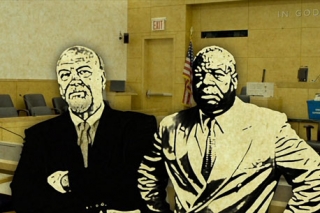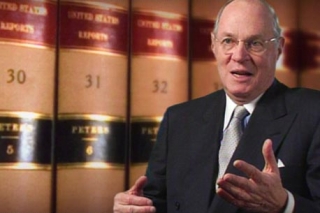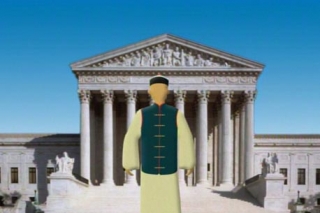About the Film
“The little man can win,” says Thaddeus Edmonson, “but you have to fight.”
In 1984, Thaddeus Edmonson was working on a construction site in Louisiana when he was badly injured on the job. Though the construction company, Leesville Concrete, covered his expenses for a time, in the end he was left with piles of bills he had no way to pay. So he sued.
A simple personal injury suit, right? Well, not this one. This case wound up in the Supreme Court of the United States.
View the trailer:
Whenever a jury is selected lawyers on both sides get to excuse a number of potential jurors without explanation. They’re called peremptory challenges and lawyers, on the whole, think they’re a good thing. “If I have a bad vibe,” says Edmonson’s lawyer, James Doyle, “I’m going to listen to my vibes because I’ve learned over the years that they’re generally correct.” But what if a lawyer’s vibe isn’t based on anything a juror does or says? What if it’s based on something else – something like a person’s race?
Well, the lawyers for Leesville Concrete excluded two potential jurors solely because of their race … and Edmondson thought that was wrong. He fought from the courtroom in Lake Charles, LA, all the way to the Supreme Court in Washington DC, which had ruled in 1986 that jurors couldn’t be excluded in criminal cases, but had said nothing about civil cases like Edmonson’s
In 1991 the highest court in the land decided in favor of Edmonson. Since then, because a construction worker from Louisiana battled for what he believed was right, no potential juror in any American court can be excluded from a jury because of race.
Jury Selection: Edmonson v. Leesville Concrete Company tells the story of how one man’s personal injury suit became a fight to protect every person’s Constitutional rights.
Image Gallery
[Not a valid template]
Credits
Writer, Producer and Narrator, Robe Imbriano
Associate Producer, Gregory Blanc
Editor, Marc Tidalgo
Graphics Animators, Victoria Nece and Hiroaki Sasa
Photography, Edward Marritz
Production Associate, Andy Ogden
Consultant, María E. Matasar-Padilla
Coordinating Producers, Christina Lowery and Heidi Christenson
Sound, Mark Mandler and Roger Phenix
Music, Ben Decter and Gavin Allen
Additional Graphics, Tristian Goik and Michael Truong
Production Accountants, Mara Connolly and Andrea Yellen
Interns, Andrew Mangino and Carla Altaras
Assistant to the Executive Producer, Lauren Mitte
Senior Producer, Kayce Freed Jennings
Executive Producer, Tom Yellin




